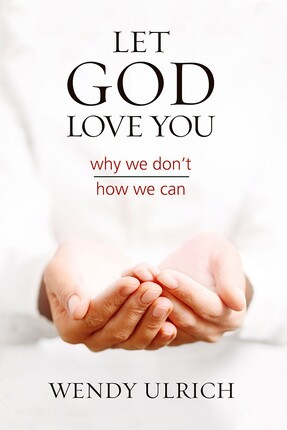The following is a segment of an address originally given by Latter-day Saint Wendy Ulrich, Ph.D., at the FAIR Mormon conference and reposted with permission:
As a small child, I remember confronting the question of whom I loved more—my father or my mother. Neither of them posed this question to me nor did anyone else, but once I had conceived of the question I was plagued by it for some time. . . .
Even as a very small child, I concluded that I could not choose which of my parents I loved more. Perhaps this early experience helps me trust at a level deeper than words that God does not love one of us more than another even though we are very different from one another and from Him. Right now, in all our different personalities and skills and levels of spiritual development, God knows and loves each one of us passionately and personally. He loves each one of us as much as He loves any one of us.
This is an important starting point as I approach the topic of what I hope we will teach our daughters and sons about the priesthood. Because such discussions easily gravitate to concern about the fairness of priesthood ordination in the LDS Church being open to men but not women, this dichotomy seems to represent an injustice for which God or the Church owes us an explanation.
Are boys better than girls?
Children have a way of saying it like it is. In the book Children’s Letters to God, a little girl writes, “Dear God, Are boys better than girls? I know you are one, but try to be fair. Sylvia.” As an individual wrestling with God, as you do, for greater understanding of who God is and how he operates, I can answer Sylvia with conviction of my personal witness that, “No, boys are not better than girls, and yes, God is deeply and ultimately fair.”
Nephi writes, “The Lord God doeth not anything save it be for the benefit of the world. For he loveth the world, even that he layeth down his own life that he may draw all unto him. All are privileged, the one like unto the other and he inviteth all to come unto him and partake of his goodness and he denieth none that come unto him, black and white, bond and free, male and female” [2 Nephi 26:33]. With this assumption, I want to explore the possibility that God’s distribution of priesthood authority and power might bless both men and women, adults and children, rather than privileging one at the expense of the other.
So let’s suppose that you were assigned to teach a Primary class of 11-year-olds, boys and girls, about the priesthood. Would you just take a minute and write down a simple answer to these three questions: 1) What is priesthood? 2) Who can have the priesthood and how to they get it? 3) How can someone magnify the priesthood and increase in priesthood power? I hope today that we can add somewhat to Primary-level answers to these questions.
What is the priesthood?
So let’s start: “What is priesthood?” How many of you would include the word “authority” in your definition of priesthood? How many would include the word “power?” These words show up commonly in descriptions of the priesthood. For example, President Joseph F. Smith described the priesthood as, “The power of God delegated to man by which man can act in the earth for the salvation of the human family.” Doctrine & Covenants 107 states further, “The Melchizedek Priesthood holds the right of presidency and has power and authority over all the offices in the Church in all the ages of the world to administer in spiritual things.”
Also, the power and authority of the Melchizedek Priesthood includes the privilege of “receiving the mysteries of the Kingdom, to have the heavens opened unto them, to commune with the general assembly and Church of the Firstborn, and to enjoy the communion and presence of God the Father and Jesus the Mediator of the New Covenant.” It goes on to say, “The power and authority of the Aaronic Priesthood is to hold keys of ministering of angels and to administer in outward ordinances.”
Now I would say, brothers and sisters, that a person would be crazy not to desire such privileges. And this is where it starts to get tricky. Because when we think of priesthood as something that is the prerogative of men, then women are excluded from such power and authority. But if we think of women as also having such power and authority, then what exactly is it that men have that women do not?
I’ve struggled to find a definition of priesthood that clearly distinguishes what it is that men have and women do not.
Does priesthood have to do with performing ordinances? Yes, but women perform ordinances in the temple.
Is priesthood about leadership? Yes, but women lead, serve, teach, and operate in most of the capacities that the names of priesthood offices imply, including distributing the food and resources of the Church, which was the role of the Deacons; instructing and visiting Church members —the role of Teachers; officiating in ordinances—the role of Priests and High Priests; serving missions and conducting meetings—the role of Elders; uniting eternal families—the role of Patriarchs; and bearing witness of Christ in all the world—the role of Apostles.
Well, maybe priesthood is necessary to preside over mixed-sex groups then. But women not only preside over the mixed-sex children in Primary, but over the mixed-sex adults who lead them and teach them.
I have finally given up trying to define priesthood in a way that distinguishes, unilaterally, what men have that women do not, although, there is something about priesthood that men who hold these priesthood offices have that women do not. But I wonder if it would be more helpful to simply define priesthood as the power and authority given to men and women in God’s Church to administer the affairs of God’s Kingdom, perform specific priesthood ordinances, create and unite eternal families, and obtain the blessings of heaven for themselves and others as they act in the earth for the salvation of the human family, as President Smith has stated.
Which takes us to our second question: “Who can hold the priesthood and how do they get it?” For a thorough discussion of this topic, see "5 Ways Women Are Already Given Priesthood Authority & Officiate in Priesthood Ordinances in the Church."
Follow up with LDS Living to read the second part of this article later this week.
Get more profound insights from Wendy Ulrich with her latest book, Let God Love You: Why We Don't; How We Can.



